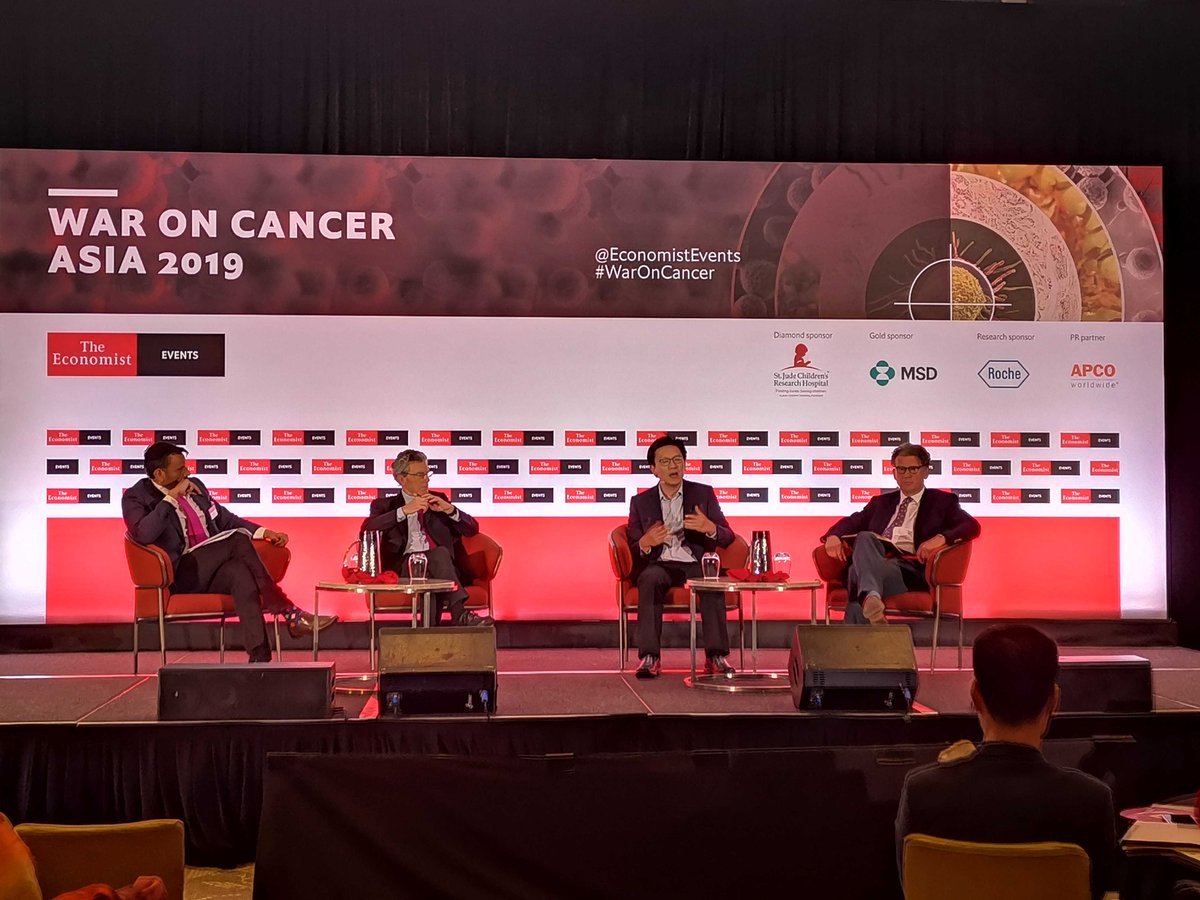
Held at One Farrer Hotel Singapore, the event brought together more than 150 speakers and delegates from both private and public health sectors to discuss the implications of National Cancer Control Plans in Asia, the growth of patient advocacy, and practical strategies to address better care and policy. The War on Cancer Asia Summit is part of The Economist’s global initiative to catalyse fresh debate and drive progress in cancer control.
Policymakers, patient advocates and private sector leaders from around the region talked about progress in cancer control and the importance of engaging patients in their care. Speakers discussed changing attitudes to cancer and challenging harmful myths that persist.
In conjunction with the event, The Economist Intelligence Unit released a comprehensive report, titled “Cancer preparedness around the world: National readiness for a global epidemic”, funded with support by Novartis, Pfizer and Roche. The study looks at the diversity of the cancer challenge worldwide, as well as the current extent of efforts to address the disease and the essential elements to building enhanced preparedness. The content of the report is solely the responsibility of The Economist Intelligence Unit and the views expressed are not necessarily those of any of the sponsors.
The report introduces the Index of Cancer Preparedness (ICP), which looks at a wide range of elements that are relevant to cancer control. The ICP combines findings from around 45 separate data points to provide a comprehensive overview of how well the 28 included countries are doing in the key areas of this challenge. From the Asia-Pacific region the ICP includes Australia, China, India, Indonesia, Japan, South Korea and Thailand. David Humphreys, head of health policy, Economist Intelligence Unit Healthcare, explained, “Effective cancer control happens within the context of good, ideally universal, healthcare. Cancer planning needs both political will and sufficient levels of investment, and cancer care interventions should be embedded within wider primary, secondary and tertiary care. An important part of the process to make this a reality is ensuring that patient representatives have a place at the table when policy is being made.”
Carlos Rodriguez-Galindo, executive vice-president and chair, Department of Global Pediatric Medicine, St. Jude Children's Research Hospital explained his views on how parents, families and others can best advocate on behalf of children with cancer: “Developing strong health systems that support delivery of quality childhood cancer care requires integration of many stakeholders. Cancer survivors and their parents should be engaged as they are the best advocates and have a vital voice for planning, decision making, and advocacy efforts. They can raise awareness of societal understanding, serving as vital drivers of change, which have a transformative impact.”
A strategy session kicked off The Economist Intelligence Unit’s latest research on the key drivers of lung cancer in the region. Dorthe Mikkelsen, President, Asia-Pacific, MSD, pointed out the importance of innovation. She commented, “In view of scientific breakthroughs, all parties involved in health care including governments, physicians, patients, and other stakeholders should collaborate to expand patient access to various innovative treatments available, such as immunotherapy which benefits patients and the community as a whole.”




